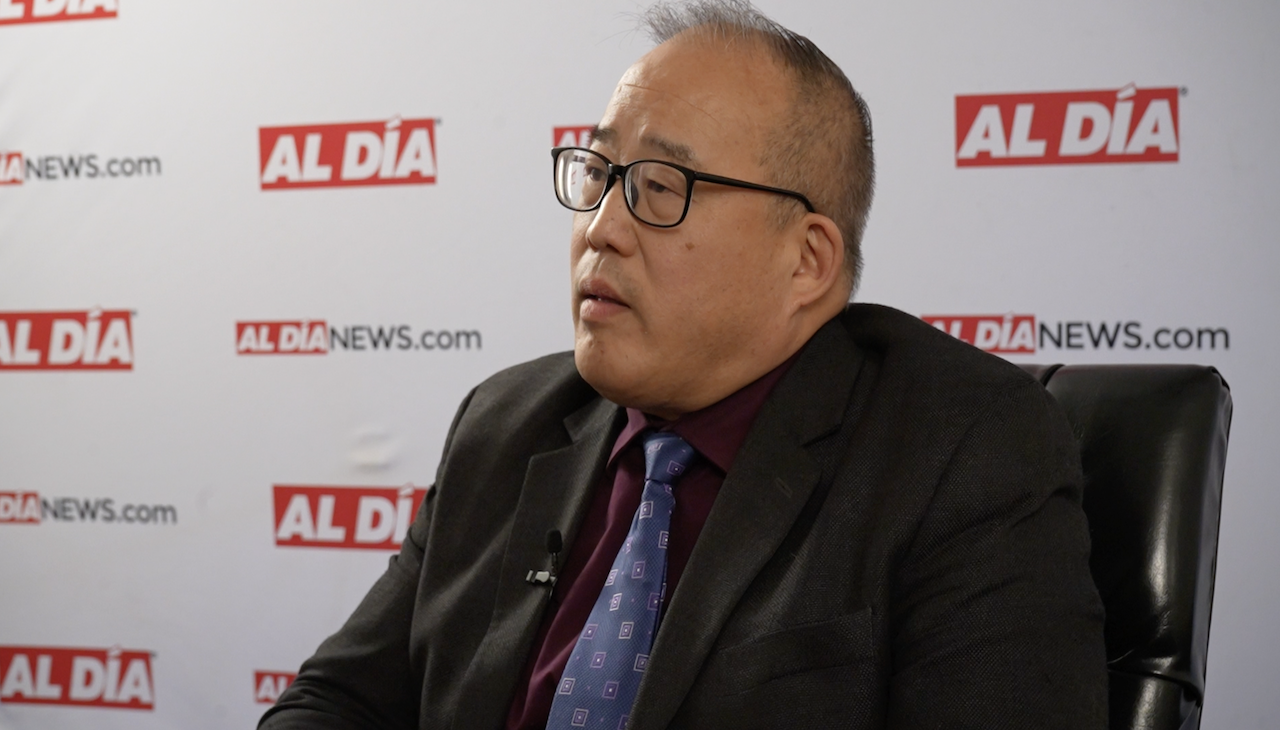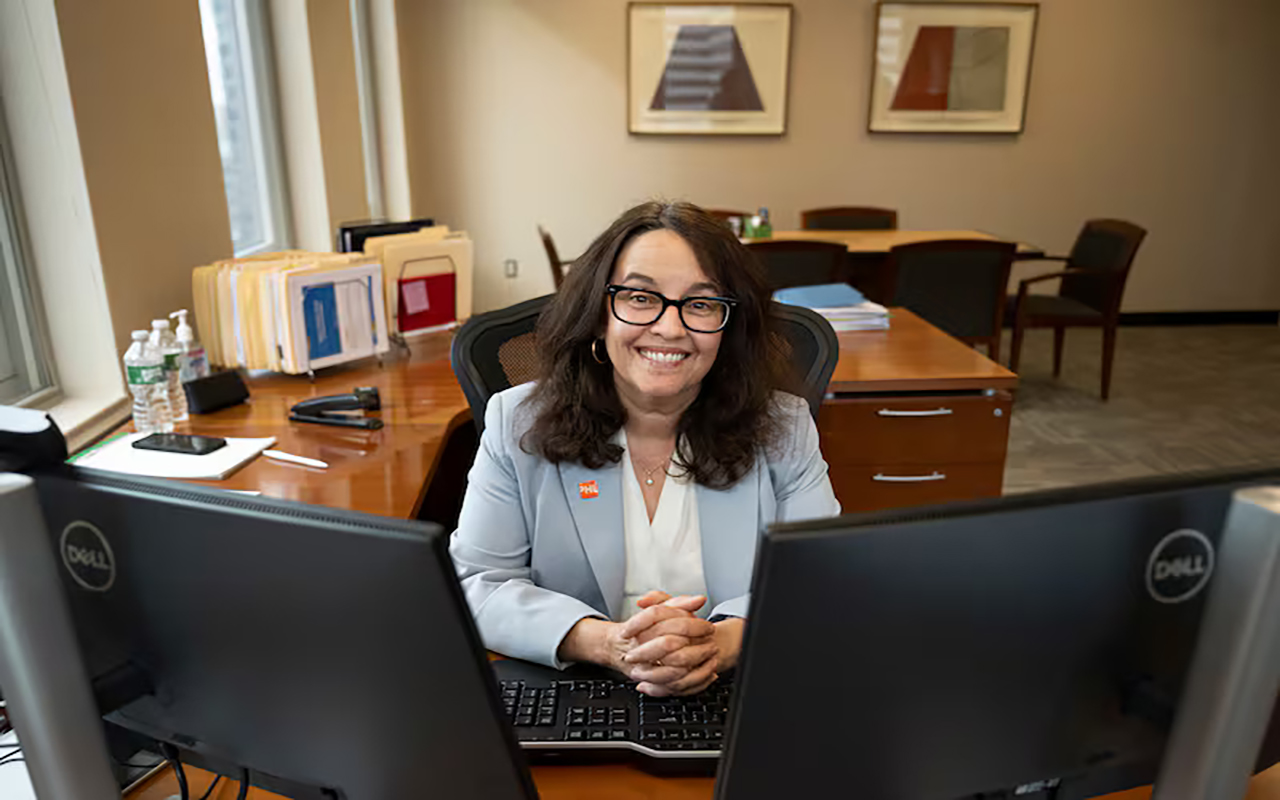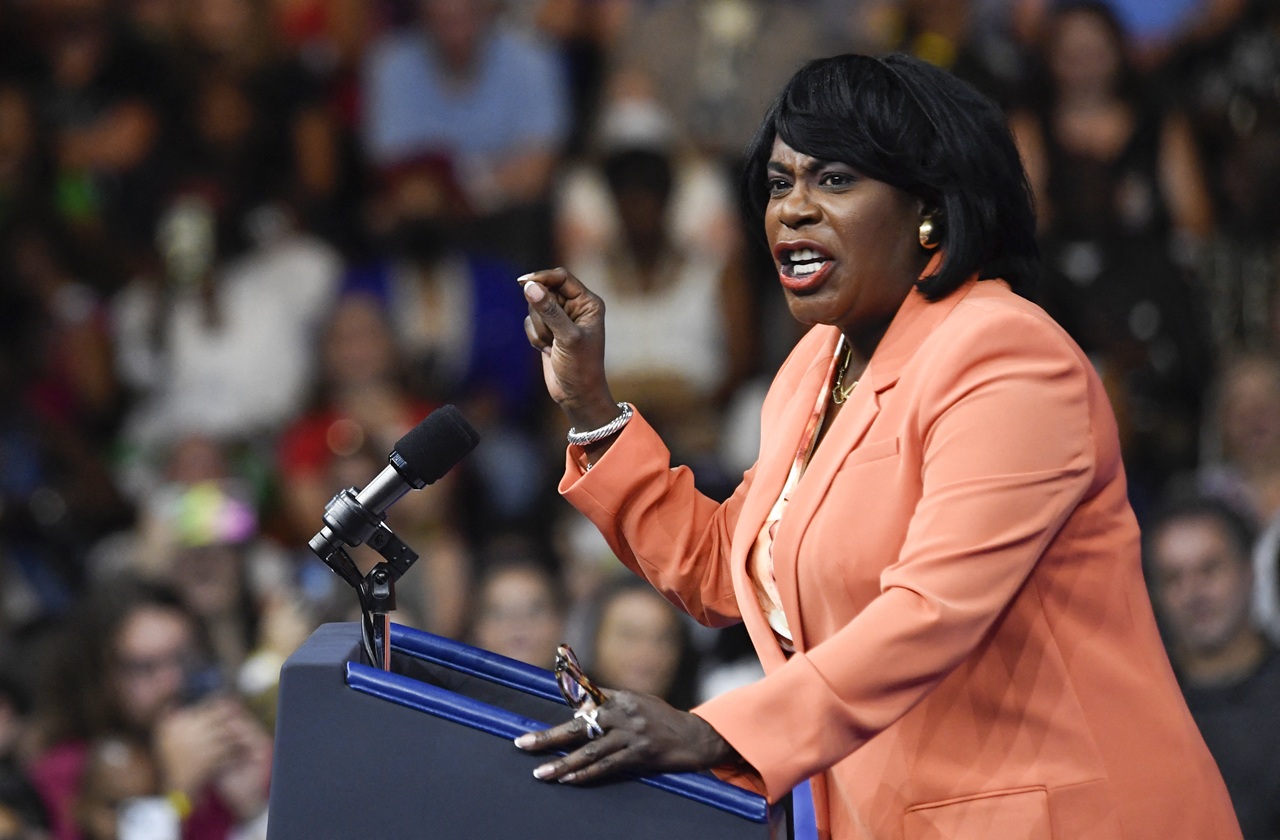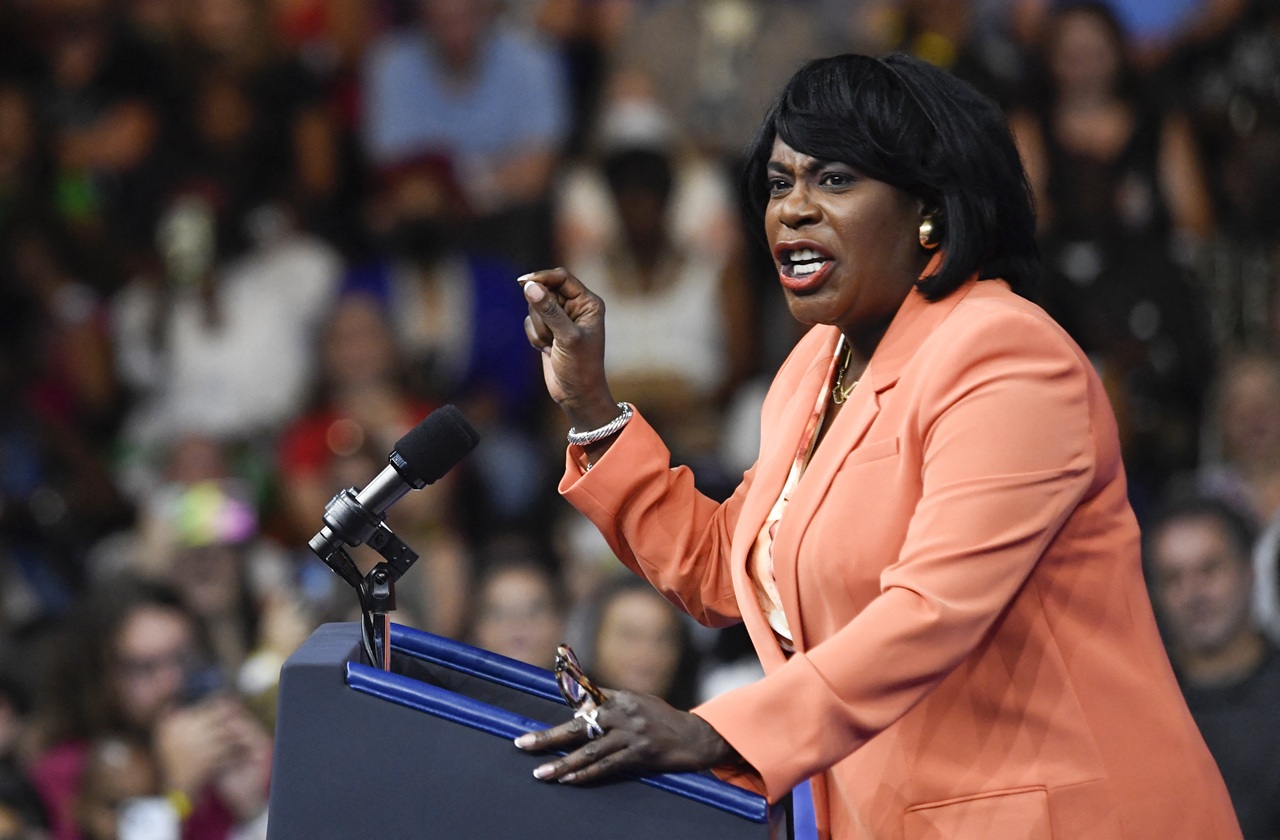
David Oh’s wins don’t drive his 2023 Philly mayoral campaign as much as his losses do
The Republican former at-large Councilmember met with AL DÍA a few weeks before he made his official announcement on Monday, Feb. 13.
When thinking back on his 11 years in Philadelphia City Council as an at-large member, David Oh called the experience a “mixed bag.”
Sure, he’s had his “little” accomplishments, as he called them in a Jan. 30 sit-down with AL DÍA, but they weren’t what came to mind when Oh was asked about them.
“I have them, but victories are victories. They’re nothing to dwell on,” Oh said. “What I dwell on are the losses.”
They’re not the whole reason Oh finally announced his run for Philadelphia Mayor as the sole Republican candidate on Monday, Feb. 13, but do go a long way in painting a picture of how the longtime at-large councilmember sees the structure of the city and how he wants to make a difference.
“We’re a strong mayor city,” Oh said, “it’s in our charter.”
He went on to explain how that dynamic leaves his former post at City Council a little shorthanded beyond legislation to direct change in the city. The mayor, on the other hand, gets reported to by more than 100 agencies, departments and offices to make the city run on a daily basis. Their impact is much larger, and as a result, where they go, so does Philadelphia.
“If we have a good mayor, we have a good city. If we have a mayor that doesn’t want to show up for work, things go south,” Oh said, offering an all-too-common jab at current Mayor Jim Kenney. “I find this situation to be something that can be fixed.”
Losses in focus
Some of the solutions Oh offered, deal directly with two major losses he still grapples with from his time in City Council. They involve property taxes and the city’s Department of Human Services.
On property taxes, Oh cited their recent spike following the city’s first assessments since 2019. The result of those assessments saw the value of some Philadelphia residents’ properties increase over 200% — per an Inquirer analysis from last year. The biggest increases were found to happen in zip codes with the highest poverty rates — effectively pricing some residents out of their longtime homes in the absence of relief like LOOP and the Homestead Exemption, which not everyone knows about, let alone applies for.
In Oh’s view, the city’s “whole process of getting property taxes from people who are overtaxed and overassessed is illegal.”
To begin to combat at least the assessment part of the process, in 2019, Oh pushed for an audit of the Office of Property Assessment, and how it went about assessing properties’ values. This came amid the outcry that year when properties in the city were last assessed before 2023.
When the audit was finally completed by a third party, the auditors found that the office’s methodology was “below industry standards.” In practice, Oh said it created vastly different property values for land on the same block in the city.
His next step was to introduce a bill that would allow residents to reject their 2019 property assessments because of the “below industry standard” methodology. It was defeated — and he still remembers.
“Nobody should be paying these taxes,” Oh told AL DÍA. “Just cause you want money, doesn’t mean you can overtax people.”
His next big battle came against Philadelphia’s Department of Human Services — which has the highest removal rate of children from households of the U.S. 10 largest cities, per data from the National Coalition for Child Protective Reform.
Oh’s experience with that process became personal in 2018, after his son broke a collarbone practicing judo alongside his dad and siblings in the family’s home in Southwest Philadelphia.
While at CHOP receiving treatment for the broken bone, a social worker showed up and interviewed Oh’s son away from his parents about the incident. The encounter concluded with the social worker informing the Ohs that they would be filing a report of suspected child abuse with the city’s Department of Human Services.
Armed with that experience and those of other constituents, Oh called for a public hearing to consider putting more stringent guidelines in place for social workers filing reports of abuse. It was billed as a general hearing about the Philadelphia agency, but brought a number of mothers out from the shadows about how their kids were lost in the system.
“That’s not just negligent, that is criminal,” Oh told AL DÍA, alleging another illegal component to Philadelphia government’s operations. “There’s no excusing that. Again, the government is the problem.”
“Enforce laws on the books”
Now running to lead that government, beyond his battles on City Council, Oh said public safety, specifically “stopping murders” are his top priority.
“When you stop the murders and the criminal behavior, you’re saving two people,” said Oh, referring to the victims and perpetrators of violence.
For solutions, Oh attempted to paint a broad picture at different points of his conversation with AL DÍA, featuring a number of different facets like better supported schools, libraries, and drawing more businesses from around the world to open up shop in Philly to bring jobs and opportunity.
“We have to be a global city,” said Oh on the latter point, citing what he sees as “unrealized potential” for thousands of Philadelphians, especially in the city’s multicultural and multilingual communities.
But what was repeated the most during the conversation on public safety regarded enforcement, and Oh believes the mayor should do more to empower law enforcement to “enforce laws on the books.”
He views public safety in Philly as a cycle — crime goes up, there’s an overreaction to its spread, prompting heavy-handed enforcement, and then a middle ground is found that works for both the community and police. The last part is the cycle resetting when a new leader comes along and does away with the middle ground that was found because crime is no longer an issue.
Where is Philadelphia in that cycle right now, according to Oh?
“We’re about to have an overreaction,” he said.
RELATED CONTENT
In terms of actual enforcement strategies, Oh cited focused deterrence, which targets the offenders in the most violent parts of the city and gets them job opportunities and more options beyond a life on the street. That, or they end up in jail.
“You don’t have to be harsh about it, but you can’t let anything go,” Oh said.
{"preview_thumbnail":"/sites/default/files/styles/video_embed_wysiwyg_preview/public/video_thumbnails/dM-sHQcP8Ho.jpg?itok=rNTXlK6-","video_url":"https://www.youtube.com/watch?v=dM-sHQcP8Ho","settings":{"responsive":1,"width":"854","height":"480","autoplay":1},"settings_summary":["Embedded Video (Responsive, autoplaying)."]}
The bureaucracy of opioids
On the opioid crisis, Oh viewed it as mostly a “bureaucratic problem.” He said the current system that’s set up does nothing to combat early intervention in cases of suspected addiction. His example of city relief for addicted residents being shuttered on weekends is something AL DÍA’s heard from other mayoral candidates it’s interviewed.
“In our system, they have to be full blown addicted,” said Oh. “Monday’s too late,” he continued, referencing the city’s operational challenges.
Plans beyond expanding the days of operation, Oh said the city should increase the amount of days people can get help from the city against their addiction, and suggested sending those picked up by city services from outside of Philly back to their home counties or states. He also re-emphasized enforcement as an effective prevention strategy against drug dealers.
When asked about safe injection sites, Oh said he was opposed.
“There’s a point where people have to be like: ‘You know, it’s a wonderful idea, it just doesn’t work,’” he said.
Taxes for good services
The last topic AL DÍA touched on with Oh was tax reform. He said people shouldn’t “pay extra” for the bad services provided by the city, but didn’t offer any specific reforms.
Instead, Oh suggested the city needed to do a better job of selling itself to bigger employers from around the world to bring more jobs and taxable income.
{"preview_thumbnail":"/sites/default/files/styles/video_embed_wysiwyg_preview/public/video_thumbnails/RpEROL0OVPw.jpg?itok=A40EF6EP","video_url":"https://www.youtube.com/watch?v=RpEROL0OVPw","settings":{"responsive":1,"width":"854","height":"480","autoplay":1},"settings_summary":["Embedded Video (Responsive, autoplaying)."]}
Unlike in his previous races, Oh does have the support of Philadelphia’s Republican Party in his 2023 mayoral race. Keep an eye on him as Philadelphians hit the polls on Nov. 7, 2023.

This content is a part of Every Voice, Every Vote, a collaborative project managed by The Lenfest Institute for Journalism. Lead support is provided by the William Penn Foundation with additional funding from The Lenfest Institute, Peter and Judy Leone, the John S. and James L. Knight Foundation, Harriet and Larry Weiss, and the Wyncote Foundation, among others. To learn more about the project and view a full list of supporters, visit www.every voice-every vote.org. Editorial content is created independently of the project’s donors.











LEAVE A COMMENT: